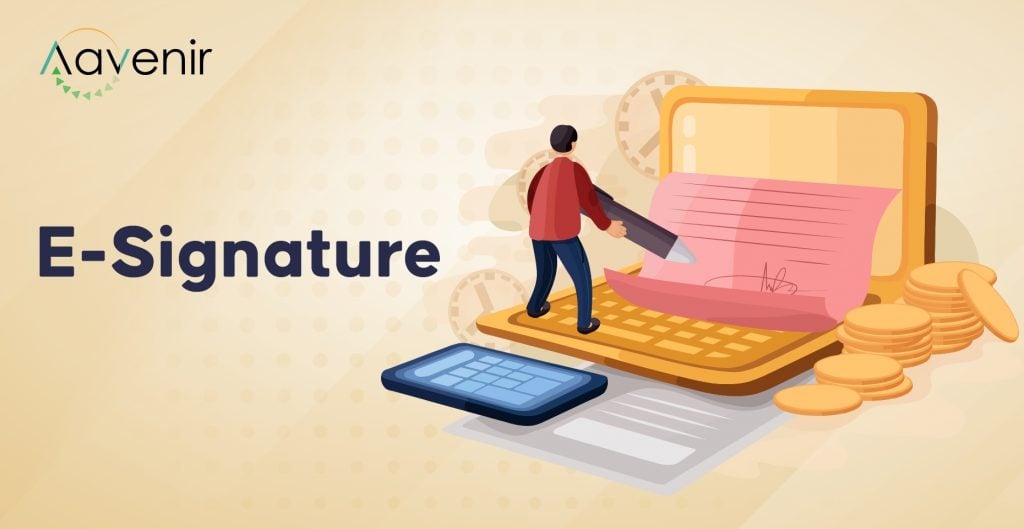What is an E-Signature?– Definition
An electronic signature also known as an e-signature is a signature in electronic form. It allows signatories to approve or agree to the terms of a document in the same way as wet signatures do. An electronic signature is a method in which computers validate the signatory and guarantee the integrity of the document.

Digital signatures are electronic signatures that use complicated algorithms, certificate authorities (CAs), and trust service providers (TSPs) to validate the signatory and the integrity of the document.
The Difference Between Electronic and Digital Signatures
There is a subtle difference between electronic and digital signatures, but they are critical to compliance officers, auditors, judges, and regulators. Electronic signature or e-signature refers to any signature created by a service like DocuSign or is digitally scrawled on a document that is sent electronically. Digital signatures are an advanced form of electronic signature that keeps your documents compliant and safe.
For agreements where security and compliance standards are liberal, conventional e-signature may suffice. For example, consider the circumstances in which an HR professional must authorize an employee’s vacation time.
On the other hand, a digital signature is a must when working with processes that must adhere to stringent security and compliance standards. All digital signatures include audit trail capabilities, encryption, and other back-end technologies to verify that the signature is authentic. People use them commonly for contracts, tax paperwork, and insurance forms, among other things.
Digital signatures are a subset of electronic signatures with unique features that make them more suitable for professions like legal and healthcare.
Advantages of E-Signatures
Electronic signatures outperform their physical counterparts. They are quick, portable, legally binding, and help us lessen our environmental impact. Moreover, they have technology backup that verifies the signature’s authenticity.
Instant and Convenient
Electronic signatures minimize the time it takes to approve and sign documents by removing waiting periods. You don’t have to worry about delivering the document physically to get it signed. Instead, you can go to the next step once you have applied your electronic signature to a document.
Signing documents is much easier using electronic signatures. Due to the portability of electronic signature systems, you may sign or request signatures from nearly anywhere on the planet, using any device you like. You don’t need to print, sign, scan, and resubmit your document, nor do you need to own a fax machine to send and receive signed documents.
You also don’t have to worry about minor errors becoming major issues because many electronic signature solutions will not let you submit a document unless you fill each signature field.
Legally Binding
Electronic signatures are legally binding in the same way wet signatures are.
The United States passed the E-Sign Act in 2000, which legally defines an electronic signature and gives such electronic signatures the same legal authority as a wet signature. Almost all states have also ratified the Uniform Electronic Transactions Act (UETA), allowing electronic signatures. However, certain legal documents such as Wills, cannot be electronically signed.
Conclusion
Electronic signatures allow us to sign legally binding contracts online without having to print anything or pick up a pen. They are more convenient than traditional signatures as they allow you to sign papers remotely, saving time for faster execution – irrespective of the signatories location and helping deliver instant results. As a result, it’s simple to see why e-signature technology has become a must-have for almost every organization.
Are you harnessing the power of Electronic Signatures for your organization? Talk to us if you face any challenges in streamlining Procurement and Contract Management process for your business.
Explore Additional Resources To Know More




